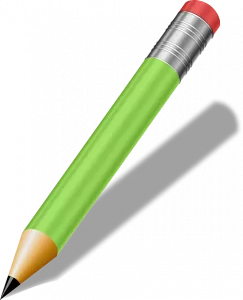
Some French mistakes
If you are here is that you want to learn and improve your French, well done!
That’s a great idea 😀

Let a comment at the end of the article to tell me what you think about it:
- Do you like it?
- Does it help you?
- Do you have any questions that you want me to anwser?
- Do you want to learn more about your mistakes in French?

Some French mistakes you won’t do anymore!
Dans le matin, elle va faire les courses.
Dans le matin, elle va faire les courses.
We never use the word dans in that case.
We say instead:
Le matin, elle va faire les courses.
In the morning, she goes shopping.
Le matin, je vais à la pêche.
In the morning I go fishing.
Le matin, la première chose que je fais c’est de déjeuner.
In the morning, the first thing I do is to have breakfast.
Pour l’après-midi, il va faire la sieste.
Pour l’après-midi, il va faire la sieste.
We never use the word pour in that case.
We say instead:
L’après-midi, il va faire la sieste.
In the afternoon, he will take a nap.
L’après-midi, il fait trop chaud pour aller se balader.
In the afternoon, it is too hot to go for a walk.
L’après-midi, on va faire un tour en bateau.
In the afternoon, we are going to have boat ride.
Le soir, je sors boire un verre dans mon bar préféré.
In the evening, I go out for a drink in my favorite bar.
C’est ≠ Il est
C’est is followed by a adjective or a determinant:
Il est un professeur.
C’est un professeur.
He's a teacher.
Elle est une belle maison.
C’est une belle maison.
It’s a beautiful house.
Il est agréable ici.
C’est agréable ici.
It is pleasant here.
Il est un idiot.
C’est un idiot.
He's an idiot.
Il est can be followed by an adjective but it is never followed by a determinant:
C’est sympa.
Il est sympa.
He's nice.
C’est grand.
Il est grand.
He’s tall.
C’est professeur.
Il est professeur.
He's a professor.
C’est français.
Il est français.
He’s French.
C’est idiot.
Il est idiot.
He’s a fool.
DE + LE = DU
J’ajoute de le poulet dans la salade.
J’ajoute du poulet dans la salade.
I add chicken to the salad.
C’est de le couscous.
C’est du couscous.
Thi is couscous.
DE + LES = DES
Il y a de les casseroles sur la table.
Il y a des casseroles sur la table.
There are pots on the table.
J’ai mis de les vêtements sur ton lit.
J’ai mis des vêtements sur ton lit.
I put clothes on your bed.
à + LE = AU
Elle va à le magasin.
Elle va au magasin.
She’s going to the shop.
On va à le parc.
On va au parc.
We’re going to the parc.
à + LES = AUX
J’ai fait une tarte à les fraises.
J’ai fait une tarte aux fraises.
I made a strawberry pie.
Téléphone à les copines pour les inviter.
Téléphone aux amies pour les inviter.
Phone friends to invite them.
Do you understand your mistakes, now?
Thomas, your French teacher 😀
+++++++++++++++++++++++++++++++++++++++++++++++++++++
How to avoid making mistakes with the prepositions à?
It's easy to speak French, really? Yes!
+++++++++++++++++++++++++++++++++++++++++++++++++++++

Thomas Ricomard specializes in teaching French as a foreign language. He has been providing private lessons since 2015, both in-person and online (via Skype). He taught at the Popular University of the Canton of Geneva (Switzerland) from 2015 to 2018, instructing several groups of 20 students from around the world (United States, Canada, United Kingdom, Spain, Brazil, South Africa, Zimbabwe, Mexico, etc.), ranging from beginner to intermediate levels (A1 to B2). With a Master’s degree in clinical and cognitive psychology from the University of Geneva, his knowledge of psychology allows him to tailor his teaching methods for optimal learning, taking into account factors such as visual memory versus auditory memory. He expresses his passion for the French language through writing texts, including poetry and songs, which he presents publicly at numerous music and slam events.

Highly appreciate
I’m glad to know it!